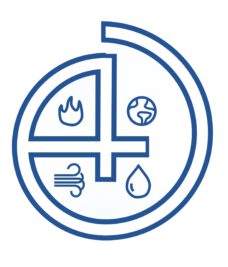Practical Labs
applying simulative tools to solve real engineering tasks
Practical Labs
applying simulative tools to solve real engineering tasks
Have a look at the practical labs we organize. There is potential to generate new concepts in the scope of CFD simulations, HVAC, space propulsion, or wildfire simulations.
Combustion Modelling
Combustion Modelling
Lab1
Cooling Channel
Cooling Channel
Lab 2
Combustion modelling
Introduction:
The practical course centers around two key components. Initially, participants acquire proficiency in using CFD tools to simulate rocket engines, enabling them to predict the outcomes associated with different models. To support this, sensitivity analyses are conducted, allowing participants to evaluate the uncertainty of the results generated. Secondly, participants engage in the physical evaluation of the results obtained. This involves comprehensive discussions of the findings, utilizing a range of analytical tools for in-depth analysis.
Objective:
Utilize CFD methods to model intricate physical processes. Specifically, participants will gain the ability to forecast turbulent combustion in spacecraft engines using cost-effective approaches. They will also learn to differentiate between various numerical models and make independent selections among them. Additionally, they will analyze interrelated phenomena and derive conclusions from their findings. Lastly, participants will be equipped to perform independent expert evaluations on innovative designs of rocket combustion chambers.
Teaching and learning method:
At the beginning, participants undergo a comprehensive training program. They start by receiving instructional materials, which include presentation scripts covering the theory of turbulent combustion. The theoretical concepts are presented in lectures. Practical application of numerical tools is emphasized in tutorials. Throughout the training course, specific milestones are established for the participants’ projects, and the results are reviewed collectively.

Cooling channel simulation
Introduction:
This practical course is designed for those interested in understanding the critical role of cooling channels in rocket engine performance. Participants will engage in hands-on activities, utilizing simulation tools like ANSYS Fluent to explore various designs and configurations of cooling channels. The course emphasizes the principles of thermal management, focusing on turbulence modeling and the behavior of supercritical fluids. By blending theoretical knowledge with practical application, this course aims to equip participants with the skills to design and optimize cooling systems for rocket engines.
Objective:
This hands-on course is to provide participants with a comprehensive understanding of rocket engine cooling channels, focusing on their design and optimization using ANSYS Fluent. Participants will learn the fundamental principles of cooling channels, explore turbulence models and supercritical fluids, and validate simulation results against experimental data. Through parametric studies, they will investigate the impact of design parameters on cooling performance and apply their knowledge to create tailored cooling channel designs for specific operational conditions. By the end of the course, participants will be equipped with the skills necessary to effectively analyze and design cooling systems for rocket engines.
Teaching and learning method:
Initially, participants will receive a comprehensive review of cooling channels’ fundamentals of supercritical fluids and turbulence models. Following this introduction, participants will delve into practical applications using ANSYS Fluent, where they will gain hands-on experience in creating cooling channel geometries, generating meshes, and understanding the underlying physics. The course will also cover validation techniques using experimental data for supercritical fluid to ensure simulation accuracy alongside optimization strategies for enhancing cooling channel performance. Participants will undertake project work to solidify their learning, applying the skills and knowledge acquired throughout the course to develop and present their cooling channel designs.


